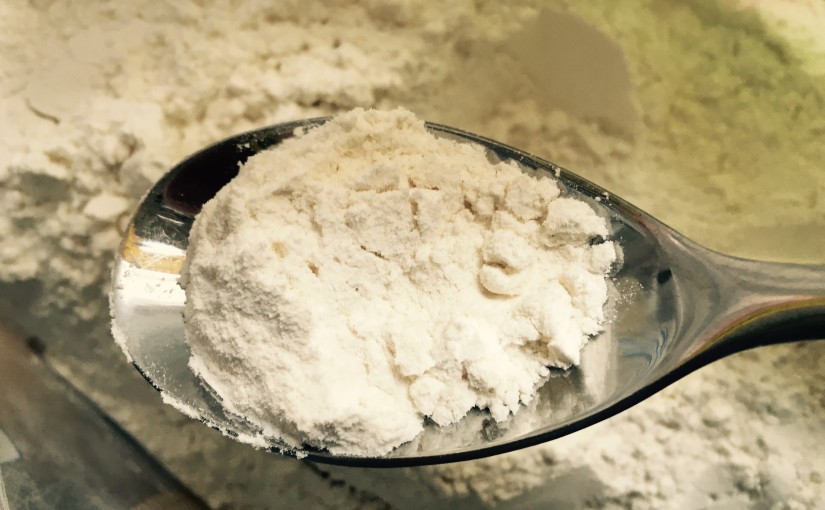Interest in eating gluten free has seen a major uptick in the past few years, but how much does the science back up the claims?
First, some numbers. I spoke with Darren Seifer at the NPD Group earlier this summer. During our conversation he shared some numbers with me from their annual research of consumer behavior around food and beverage:
“Most people who are trying to avoid gluten don’t need to. They don’t have celiac; less than 1% of Americans have celiac . It’s estimated that another 6-7% of people have some kind of sensitivity to gluten . There’s only about 8% who have some kind of sensitivity to gluten. At the same time, 30% of people are telling us that they are trying to avoid gluten . Most of the people are avoiding gluten for reasons other than some need. The reasons that they are telling us is that they feel better, or that they feel it’s healthier even when isn’t necessarily. But that’s the predominant reasons that we’re getting: they just feel better when they avoid it.
That 8% of a population is sensitive to gluten is huge. Having more food options for these individuals is fantastic. We’ll all benefit from a better understanding of what causes these health issues and new processes created for making gluten-free food won’t be limited to just the gluten-free eater. (Side note: 8% may be high—I’ve seen 0.5% —but there will be a difference if one study is looking at gluten in isolation and another is looking at it in context. It may be that for 8% of us, gluten triggers a response to something else we’re eating— see this study .)
But what about everyone else? Depending upon the report*, somewhere between 24% (30%-8%) and 39% of Americans claim gluten sensitivity. (*Another report, mentioned by NPR’s The Salt , claims 47% of Americans identify as gluten-sensitive, so that 24% “self-report but not diagnosed” might be more like 39%.)
I suspect that 24-39% (can we just call it “one third?”) of the American population who incorrectly claim gluten sensitivity— excluding those who have a measurable physiological response —fall into one of the following categories:
- Placebo effect —believing that the food is better for you may in fact make the food better for you. There are plenty of anecdotes of this; I’d be grateful for readers aware of good stories and studies that relate to food (please contact me with them!).
- Perceptions around health —related to placebo effect, but more of a “health halo.” Ironically, eating gluten-free can cause long-term deficits in trace nutrients normally obtained from flour (iron, thiamin, folate, vitamin A, etc.); fortified gluten-free foods may be in order.
- Distrust of the food system —i.e. who controls our food system, corporate monopolies on patents, monocultures / non-suistanable farming. There are very important issues here, but they’re outside my domain of knowledge. In conversation with readers, people bring up fears that “modern wheat” has been genetically altered and is unhealthy, or that modern baking practices use shorter ferment times for yeast to “fully convert” the wheat. I’ve seen this pattern before in conversations about GMOs; I have found that the science–based fears are generally masking concerns around food policy issues.
- Sense of community —there must be a New Yorker cartoon out there with a college student showing up to a protest with a blank sign and a pen, asking “What are we protesting this time?” Being part of a tribe is empowering. From weight loss to smoking, the behaviors you perform are shaped by your peers. I’d be fascinated to see a study on correlation of when individuals start claiming gluten sensitivity based on when their friends did.
What I find fascinating is the perception around gluten-free. Why do we eat the way we do? Where do we get our beliefs about our food from? (The placebo effect fascinates me.) How can we learn to set aside personal beliefs so we can correctly apply the science? Let me know your thoughts.
Liked this? Then sign up for my newsletter .
Comments of Note that I’ve Received:
- There’s also a known effect that *any* food restriction will make most people eat better, because they have to pay attention. e.g. people who eat a lot of junk will legitimately feel better gf, because they can’t just grab a doughnut today. It’s essentially the same as the “any diet works” trick for non-calorie counting stuff. —@MagpieChristine
- Open Question: differences between FODMAP and gluten sensitivity. See this study for more about FODMAPs. Some individuals may be sensitive to FODMAPs (short chain carbs & co.) but think it’s gluten causing the problem.
- One reader calls into question the 8% figure — the paper I link to has a very small sample size (37 subjects), but Darren’s figure is also in that same range. His data was based on the NPD Group’s annual report, I believe, but I’d like to find more data on this stat!
